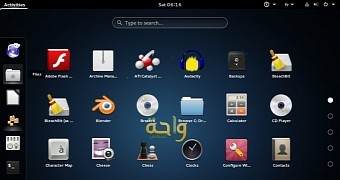The developers of the Waha Linux distribution have announced earlier today, September 8, the immediate availability for download of the Waha Linux 8.2 release, dubbed Hijra.
Waha Linux 8.2 comes after approximately four months of hard work, based on the software repositories of the recently announced Debian GNU/Linux 8.2 (Jessie) operating system. It is the second maintenance release of the Waha Linux 8 (Hijra) distribution and updates all the core components of the latest versions available in the upstream Debian repos as of September 8, 2015.
Some changes have been made to the way users download updates in Waha Linux, to ensure that you have access to the fastest mirrors available near you by determining your geographical location using your IP address and other variables. The sources.list file has been updated to support the redirection of the Mirrors of Debian service, and the Control Center has received several improvements.
"We are pleased to announce the first update of distribution and No. 8.2. This update mainly adds corrections for security problems at the source level (Debian 8). Several programs and settings have been updated, and various issues reported by users since the previous version have been resolved," reads the announcement, which is currently available only in Arabic.
Waha Linux 8.2 is not a new version of the OS
The Waha Linux developers inform their users that the Waha Linux 8.2 release is not a new version of the operating system, but only a set of updates that are already available to existing Waha Linux 8.0 users via the official software repositories of the distribution. Therefore, there's no need to download the new ISO images if you want to upgrade, just make sure you have all the latest updates.
On the other hand, those of you who want to install the Waha Linux distribution on new computers or make a fresh install of the OS can download the Waha Linux 8.2 (Hijra) Live DVD ISO images for 32-bit and 64-bit hardware architectures right now via Softpedia or directly from the project's website, whichever suits you best. More details can be found in the release announcement.

 14 DAY TRIAL //
14 DAY TRIAL //